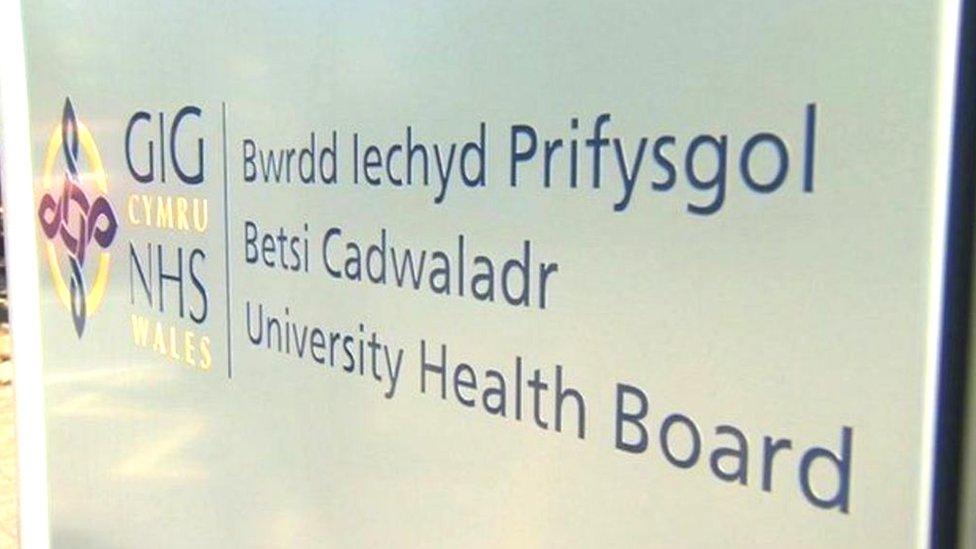Covid: Has pandemic emboldened Wales' devolution calls?
- Published
The Welsh government dealt with the crisis differently to Westminster
Two years. Roughly 200 press conferences. But is it all finally coming to an end?
Covid's legacy will affect almost all parts of our lives for years to come.
But it cannot be stressed enough how remarkable a period it has been in the history of devolution.
Those regular press conferences coupled with the magnitude of the decisions ministers made gave the Welsh government and the first minister a platform like never before.
The number of people who recognised Mark Drakeford and the status of devolution were catapulted to unprecedentedly high levels.
But as the public health crisis recedes, does that focus and attention on Senedd politics also recede?
On March 23 2020, beamed in to television screens across the country, Prime Minister Boris Johnson had a message we will never forget, external: "From this evening I must give the British people a very simple instruction - you must stay at home."
It was a message to the whole of the UK.

Mask wearing in schools was dropped from 22 February
But technical, legal decisions made in Westminster at the very start of the pandemic over which law to use turned what could have been a UK-wide Covid response in to one led by each of the four nations.
It sounds technical and dry. But that initial decision has had huge political ramifications.
Speaking to BBC Politics Wales after the last Covid press conference, First Minister Mark Drakeford reflected on that initial decision: "I thought in the very beginning, the UK government was more likely to rely on legislation, which is dealing with an emergency legislation, which is UK-wide.
"Whether they anticipated the extent to which that would mean that decisions that were out of their hands and in to the hands of elected legislatures elsewhere, well I think that's probably an open question."
Covid: Mark Drakeford takes the positives from pandemic
The first minister is a committed unionist, thinking Wales' future is best served within the UK.
But he wants to see a different type of relationship, one in which the four UK nations have more direct control.
It is not too dissimilar to the sort of set up we saw during the pandemic.
Some, mainly financial decisions, were made at a UK level, while Wales, England, Scotland and Northern Ireland had autonomy over public health decisions.
In a recent interview with Times Radio, Wales' man around the UK government's cabinet table said he wished Covid could have been dealt with "as one UK".
Welsh Secretary Simon Hart MP had said: "When I look back at it, I think that it was a pity it became almost a political competition at times. I thought that was a bit unedifying.
"Whether you're my kind of unionist or his [Mark Drakeford's] kind of unionist, of course it's an evolving picture all of the time.
"I actually thought one of the most vivid illustrations of the strength of the union was around the vaccination programme.
"Where I sort of diverge a bit from Mark Drakeford's view of the union is the relationship he's formed... between him and [Plaid Cymru leader] Adam Price, I think is very revealing because Adam Price describes the arrangement he's got with Mark Drakeford as the first step... along the way to an independent Wales."
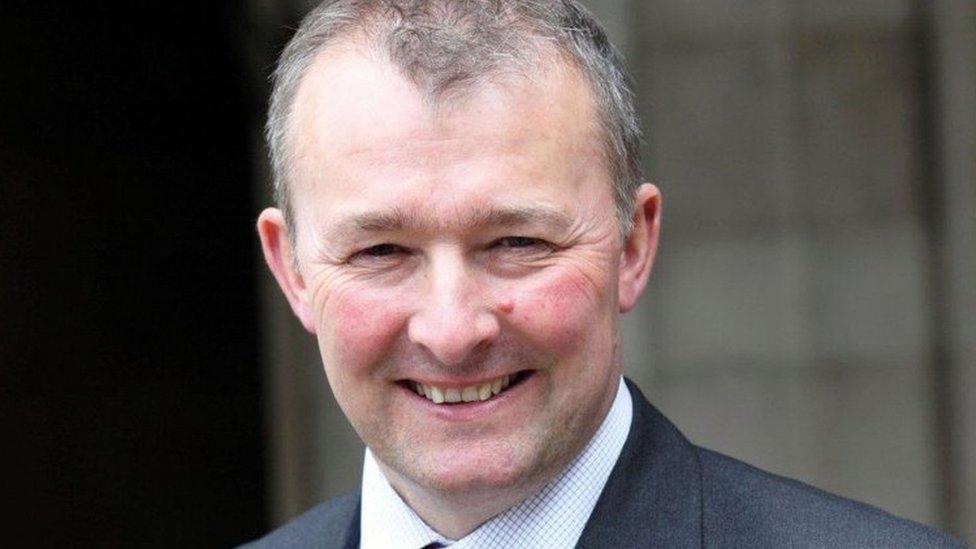
Welsh Secretary Simon Hart says different approaches by governments made it "a political competition at times"
One seat short of an overall majority in the Senedd, Welsh Labour struck a deal with Plaid Cymru to work together on certain policies over the next three years.
Both parties, a clear majority, want to see further changes to devolution.
But how likely does WalesOnline political editor Ruth Mosalski think that is?
She said: "People have seen that Wales can do things on its own... is this going to lead to more conversations about further devolved powers?
"We hear it talked a lot here [in the Senedd], that people want criminal justice devolved, for example.
"Will that happen? Well, the UK government doesn't want it to happen so probably not, no.
"And there's going to be that really interesting tension in the next few months and years that Mark Drakeford's going to keep making that point: 'We should get more devolved powers, we've done the right thing, we've shown what we can do'.
"But if the UK government doesn't want it, it's not going to happen any time soon.
"How do you build on that without any consensus between the two governments?"
Plaid Cymru offered a Welsh independence referendum by 2026 at last year's Senedd election.
But since Plaid came third, the party's leader now says independence will take "longer than we would hope".
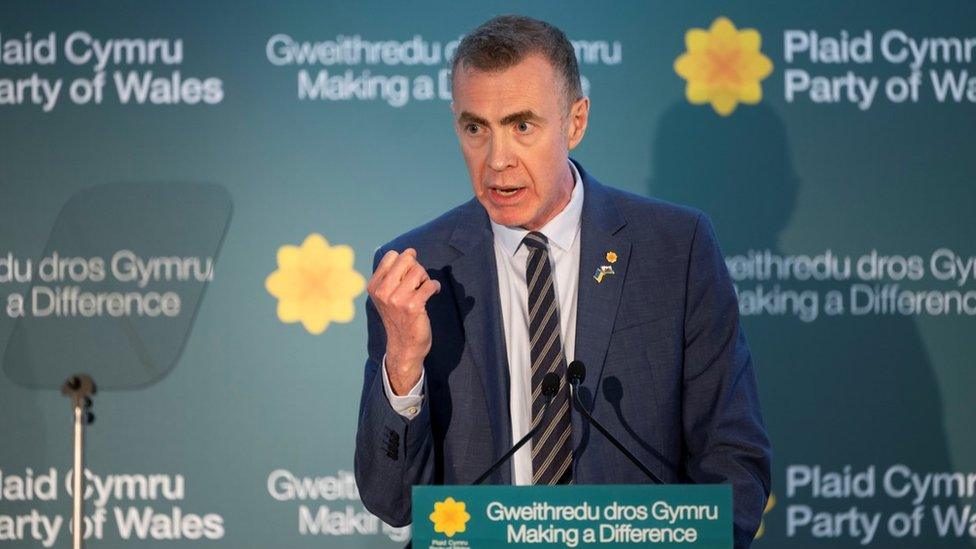
Adam Price believes "something deep and fundamental has changed in the Welsh political psyche" during the pandemic
Adam Price told Politics Wales: "Most of us, right across the political spectrum, it seems, in Wales, shifted during that pandemic in terms of our attitude towards Welsh democracy.
"You know, boy we were glad in Wales that we had a government of our own making decisions which resonated more for people here compared to the sorry state of politics in Westminster."
He added: "I think something deep and fundamental has changed in the Welsh political psyche."
If that is the case, the first minister's media exposure has played a huge part in that shift.
Research, external suggests UK-wide reporting of devolution increased as a result of Covid-19, with "approximately 40% of the news agenda" potentially relevant to devolution.
But will that level of coverage and focus on devolution continue?
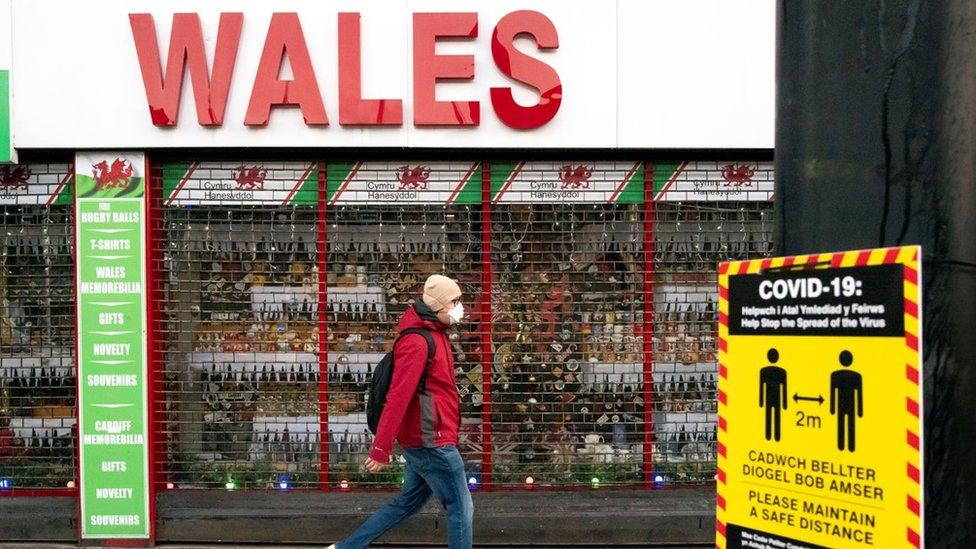
In Wales some rules were eased much more slowly than the rest of the UK
Prof Stephen Cushion, director of postgraduate research at Cardiff University's School of Journalism, said: "Covid was especially newsworthy at that time and there were different decisions... across the UK.
"They had to take that in to context and to explain the differences.
"The interviews I did with editors showed perhaps a greater awareness than a few years ago around the differences with devolution.
"But the extent to which you can actually explore it in depth because of its newsworthiness might be reduced in that sense."
From a media coverage perspective, it has been truly unprecedented, with Welsh ministers at times reaching worldwide audiences.
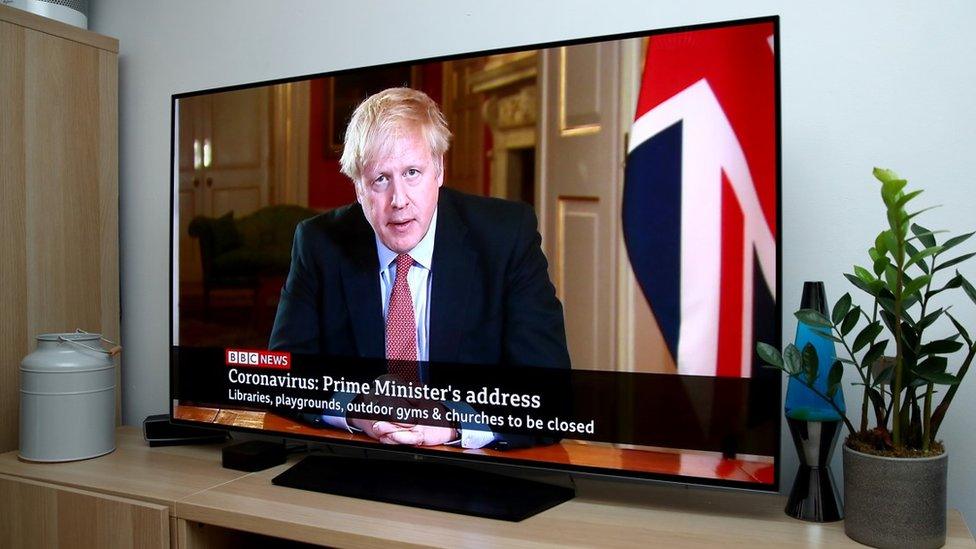
Boris Johnson on 23 March 2020, telling people in the UK to stay at home in what was the first nationwide lockdown
Mark Drakeford thinks the fact the "pandemic has changed people's perspectives of the way the United Kingdom operates will mean that there will be some enduring interest".
Either way, there are political ramifications, whether that continues to be the case or not.
It can be hard to judge the historical relevance of political events in real time.
Will historians look back at the pandemic as a fork in the road, a time when Wales' politics shifted to a different place?
Or will we forget the trauma of the past two years and carry on as before?

HOW COVID MADE THE SENEDD MATTER: Welsh politics and politicians became interesting
LESSONS FROM LOCKDOWN: How has the experience of lockdown changed us?

- Published10 March 2021
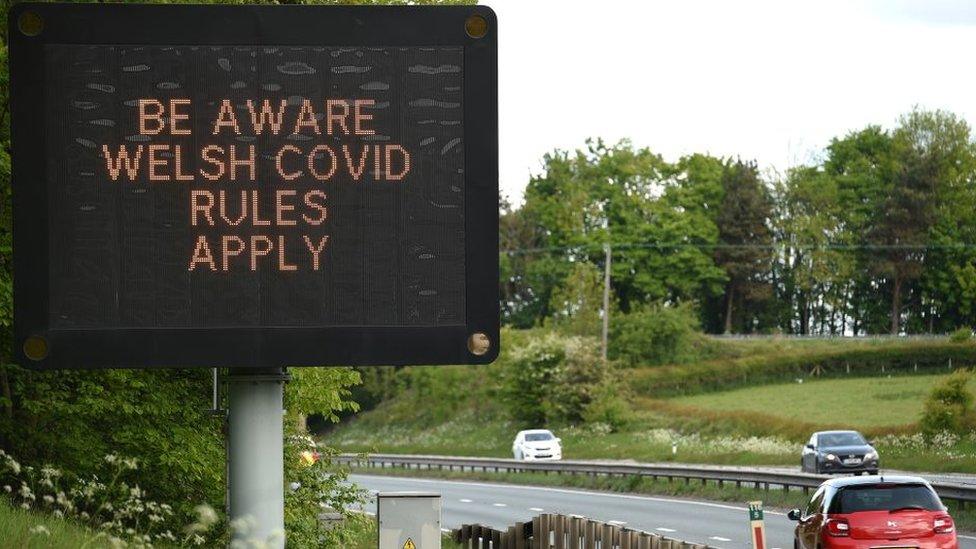
- Published28 January 2022
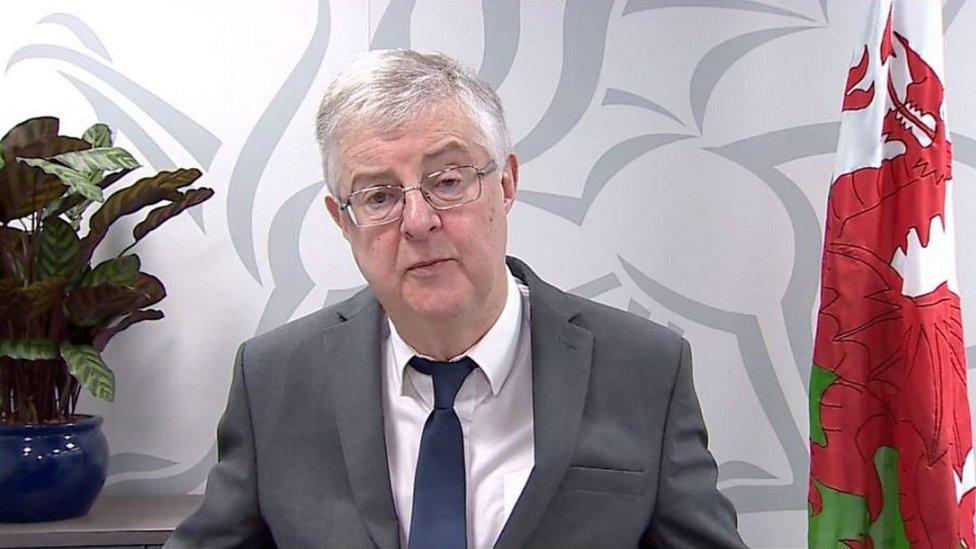
- Published15 March 2022
